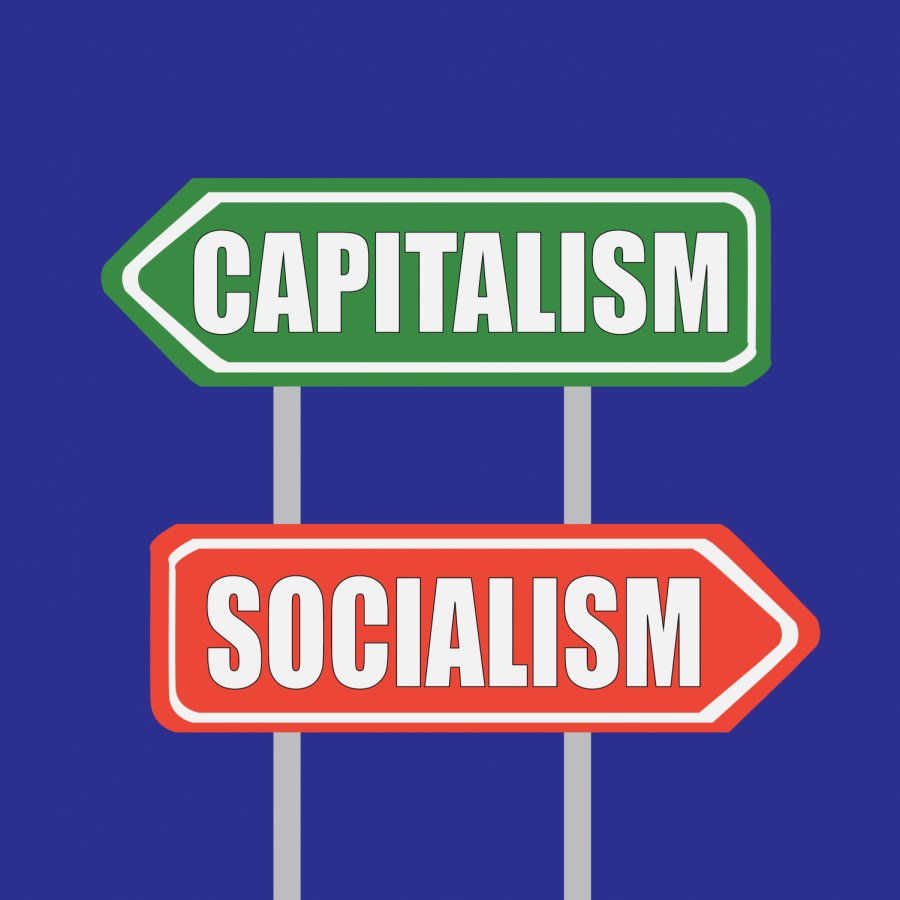Why the kids don’t like capitalism
Apr 29, 2019
Right before the collapse of the Soviet Union, political scientist Francis Fukuyama wrote an article entitled “The End of History.” He claimed the Allies’ victory in World War II had defeated fascism and the collapse of the USSR after the Cold War had defeated Communism. The western-style capitalist democracy no longer had competition.
For millennia, humans have been changing the way we organize and govern ourselves, but according to Fukuyama, the final form of government had been achieved. Thirty years later, however, history’s end seems less clear.
A 2018 poll conducted by Harvard University showed support for socialism has been growing among people ages 18-29. Capitalism still has 12% more support than socialism.
Since socialism is a very ambiguous and politically charged term, it is worth addressing what young people want specifically. The same poll revealed a majority of young people supported policies championed by democratic socialists, like the creation of a single-payer healthcare system or tuition reduction at public universities.
There are two competing schools of thought used to explain why young people are rejecting neoliberal capitalism.
Get The Daily Illini in your inbox!
The first is millennials are just inherently spoiled. We are a generation raised with participation trophies by helicopter parents, so we are always looking for handouts — the irony here is that baby boomers were seen as narcissistic and called the “me generation” by their parents.
The second philosophy is people are usually a product of their material conditions, so young people are distrustful of capitalism because the system has priced them out. Essentially, if baby boomers had to pay, on average, 213% more to go to college in an economy where tuition rates were growing eight times faster than wages, there would have been a Queen-loving Alexandria Ocasio-Cortez back then, too.
Regardless of which side you are on, it is important to keep in mind that the changes young people seek really are not all that radical. They are not interested in establishing a command economy or collectivizing farms. Going back to the Harvard poll, the root of millennial discontent lies only in a few sectors.
I believe, despite what many think, young people actually like the majority of capitalism. They simply distrust the notion that deregulated markets produce the best outcome in every industry. Healthcare and education, they believe, would be better managed as public goods.
Millennials are often quick to point out America is one of the only developed nation without universal healthcare. What this translates to is millions of Americans left without insurance. This hits young people the hardest since they are less likely to receive health insurance from their employer and are often unable to afford insurance otherwise.
The lack of access shows. Out of the 50 states, 42 have an insurance market deemed highly concentrated by the Department of Justice guidelines. This means Americans in these states have fewer insurance options and pay higher prices.
Despite spending the most on healthcare out of any country in the world, we have seen mixed results. The quality of our medical services is top-notch — if you can afford them. But the fact that many Americans cannot, especially young people, is reflected in our health demographics: 43rd highest in life expectancy, 55th lowest infant mortality rate and some of the highest drug prices in the developed world.
This lack of access to the healthcare market is indicative of large-scale financial burdens that affect the youngest adult Americans — and the problem is intersectional.
For example, the massive amount of debt incurred from student loans is the main reason young people are not buying homes, according to the Federal Reserve.
From a young person’s perspective, it seems as though the existing social programs tend to favor older and rural citizens. Social Security, for example, is something young people are paying disproportionately more for. Social Security is structured so today’s workforce pays for current retirees. If current retirees were to receive only what they paid in, their benefits would be far less generous. This is because when today’s retirees were in the workforce, America’s population-by-age distribution looked like a pyramid — lots of young people on the bottom supporting a small number of older people on top.
Now, America’s aging population has created a lopsided distribution, forcing young people to pay disproportionately more. Considering Social Security benefits are running out, this will only be truer in the future.
It’s not surprising the youngest generation in the country has become disaffected with an economic system that seems to prioritize others. Despite this, young people are not selfishly campaigning to cut Social Security or Medicare. No one wants to go back to a time when elderly people lived in almshouses.
Ultimately, most people in my generation like the majority of capitalism. The fact many on the left want to emulate the Scandinavian countries is telling. The Nordic model is really just a competitive free market system with strong social spending and democratic participation in the economy through institutions like labor unions.
Our desire for the Nordic model corroborates our affinity for democratic socialist policies, but not a completely radical redistribution of wealth or change in society. So when young people say they want socialism, the goal is reform — not revolution.
Joseph is a junior in LAS.






